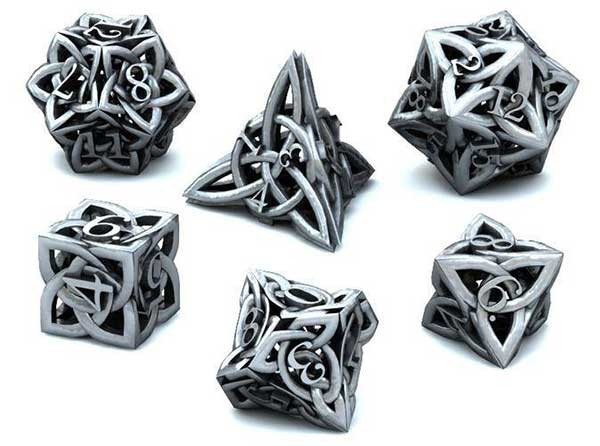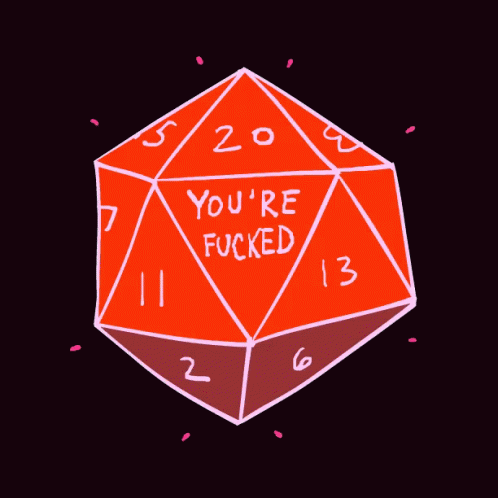So, here it is. Honestly, I wanted to tackle this topic for quite a while, but Twitter, with its 240 characters limit, ain't really the best place to do so.
But now I have a blog! And I can write basically how much I want and of whatever I want!! Iiiih!
But now I have a blog! And I can write basically how much I want and of whatever I want!! Iiiih!
 |
| Sorry, I still can't get over it *.* |
For those who aren't familiar with the word, here's a brief introduction.
What are tabletop roleplaying games?
For 'Tabletop Roleplaying Games' (from now on abbreviated to 'TTRPG' for ease of my already unsound mind) we intend narrative-driven group games originally played around a table with some friends, creating characters and stories in a premade setting thanks to a set of rules and a lot of these.
 |
| Dices. Some make for very good throwing weapons, too! |
I could absolutely nerd out and go on the various systems, the differences, the settings, and so on...but I do still value your mental sanity, at the very least more than mine, so I'll avoid doing that.
You can thank me later.
Suffice to say, these systems offer you and your friends a framework where you can move your characters and create your own stories, acting them out in an improvisational verbal (and sometimes not only verbal) act.
A playing group is usually comprised of 3 to 8 people, of which one acts as the rulekeeper and 'narrator' (generally referred to as Game Master, or simply Master) and the others each creating their own singular character to move in the story.
So, this is the basics...what then?
What happens after that is actually more simple than it might look at a first glance. I'm more than happy to admit the whole setup can make it feel like this sort of games are incredibly complex - character creation can take a while to finish, and there are the rules, the statistics to allocate, and so on - but once that hurdle is over, the procedure is quite streamlined.
The GM (Game Master) sets up the scene. He will act as the 'world' surrounding the characters, the people they'll meet, the encounters, the rules of the world. With the scene described, the other players take the role of their characters, interacting with the GM and with each other to try and figure out how to use their abilities and ingenuity to 'figure out' the situation. Depending on the group, a lot of character development and narrative stakes can take place.
Following the rules of the game and at the GM discretion, a lot of the actions the characters will try to take will be decided by the toss of one or more of those dices, representing unbiased, unforgiving, pure chance.
 |
| And this is usually the result when I play D&D. |
In this short series, I will go through:
- The benefits of roleplaying to Writers as a Game Master
- The benefits of roleplaying to Writers as a player
- Various roleplaying games and resources that you can use to try it out whenever you want!
So for now, I'd say we'll stop here. Stay tuned for the next post in this serie, coming soon!



No comments:
Post a Comment